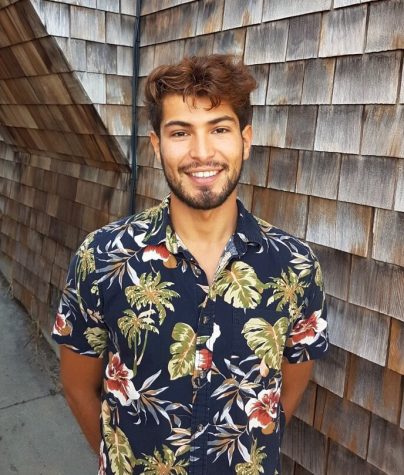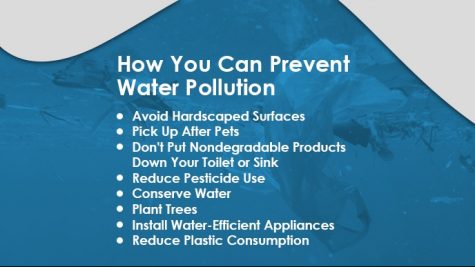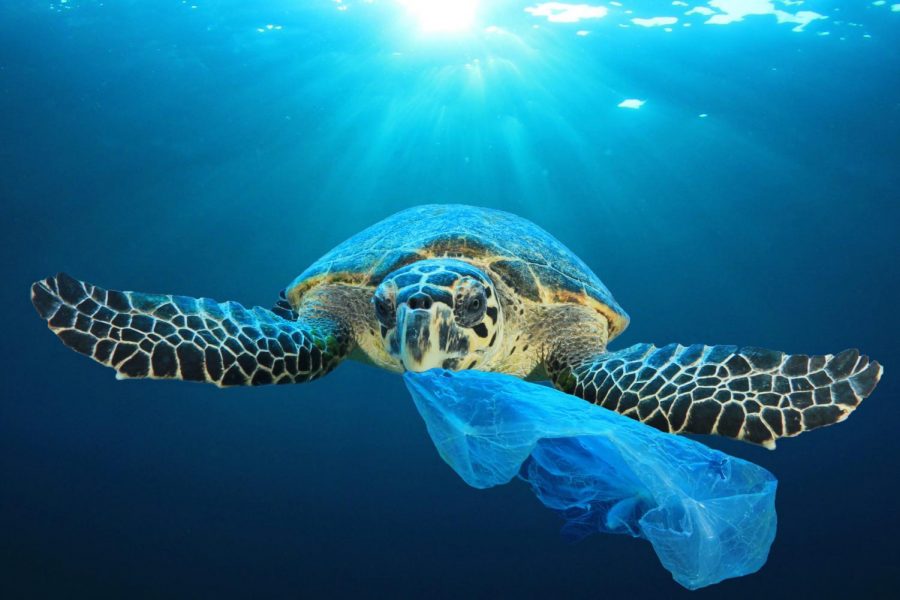The Oceans Are Dying
Humans are to blame
Photo courtesy of Google images.
Many people care about marine life; however, they are failing to take care of it. 87% of marine life around the world is dying because of human behavior, 100 million die each year from plastic waste alone. If this behavior doesn’t stop, the consequences will be dire.
“Both marine and terrestrial life are decreasing so rapidly due to their ever changing environment, animal trafficking, destruction of natural resources, and an organisms inability to adapt to current and soon to be environmental conditions,” said Eliseo Nevarez, marine biologist, research assistant and educator.
“Aquatic systems are very complex and often don’t have easy answers,” stated Tory Gabriel, an extension specialist and program manager at Ohio Sea Grant who holds a bachelor’s degree in wildlife biology and a master’s degree in life science education from Ohio University in Athens, Ohio.

Gabriel says stressors like invasive species, climate change, pollution, alterations of natural habitats due to human activity, and over harvesting are things that can cause a possible decrease in numbers and species diversity.
The International Union for Conservation of Nature says that marine fishes, seabirds and marine mammals all face high risks from increasing temperatures, including high levels of mortalities, loss of breeding grounds and mass movements as species search for favourable environmental conditions. Coral reefs are also affected by increasing temperatures which cause coral bleaching and increase their risk of mortality.
“In general, when an ecosystem has less species diversity, it is less resilient and less able to deal with additional stressors. This can lead to losing even more species. While losing species is bad for the environment, people also depend on these systems,” said Gabriel.
A few of these examples include ewer tourists, real estate prices going down, and families and cultures that are tied to the ecosystem losing their connection.
“Diversity within a natural setting is crucial for ecosystem resilience and productivity.”
Marine life around the world is changing every single day due to changes in the environment and human involvement; this is not good for their numbers. Pollution also has a major effect in the decreasing marine life population.
“Globally, 100,000 marine mammals die every year as a result of plastic pollution. This includes whales, dolphins, porpoises, seals and sea lions. There are two principle ways that encountering marine debris can be fatal for these creatures: ingestion (eating) or entanglement in plastic-based fishing gear,” says the World Wildlife Fund, one of the most trusted conservation organisations.

Plastic pollution, its production and extraction of fossil fuels contribute to climate change by releasing large amounts of greenhouse gasses.
Corporations such as Coca-Cola, Nestlé and PepsiCo are among the world’s most polluting brands. Coca Cola is the top global polluter with a total of 11,732 Coke branded plastics found in 37 countries across four continents according to a report conducted by Break Free From Plastic and Greenpeace Philippines.
In addition to this, constant destruction of natural environments and resources are common. This is due to oil spills, microplastics and various chemical properties exuded from plastics that are harmful to living organisms.
“A decrease in flora and fauna diversity could lead to dramatic changes within a specific and global environment. A decrease in vegetation, could lead to a decrease in native insects/pollinators which often leads to changes within a food web and a loss in ecosystem services which we often take for granted,” Nevarez said.
He says it is a quite depressing topic to speak on, but that it is important to get the information out to people around the world.
“As a kid I was always interested in the marine environment and knew I wanted to revolve my future career around the ocean, even though I never really knew what my future in the marine sciences would look like,” stated Nevarez, “as we continue to lose biodiversity worldwide, I believe that it’s time to increase our diversity within our work spaces to find solutions to this crisis.”
 “The good news is that scientists, conservationists, and others see these issues and are working to help; if everyone does their part, we can at least soften some of the effects,” Gabriel concludes.
“The good news is that scientists, conservationists, and others see these issues and are working to help; if everyone does their part, we can at least soften some of the effects,” Gabriel concludes.
Together, people can do things such as reduce the number of trips they take in their car, reduce or eliminate fireplace and wood stove use, invest in reusable silicone straws, and use reusable food containers to reduce both air and plastic pollution.



